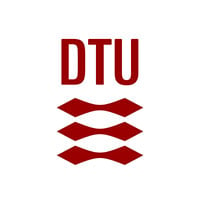Demonstrate MR imaging of nuclei other than hydrogen by building MRI detectors and antennas, which can cover frequencies of multiple nuclei
Position Details (PhD Program)
The Electromagnetic Systems group at the Technical University of Denmark (DTU) seeks a qualified candidate for a Ph.D. position in MRI radiofrequency detector development. The project will be conducted in collaboration between DTU and the University of Queensland (UQ), Australia.
A typical MRI scanner uses radiofrequency detectors to image water molecules. Imaging other molecules and nuclei requires additional new detectors and antennas. The objective of the Ph.D. project is to demonstrate MR imaging of nuclei other than hydrogen by building MRI detectors and antennas, which can cover frequencies of multiple nuclei.
Responsibilities and qualifications
The main outcome of the project will be a broadband/multinuclear detector array, ready to be implemented in clinical environment. It is a cross-disciplinary project and collaboration with the Department of Health Technology at DTU as well as other national and international institutions, such as University of Queensland, Aarhus University Hospital, GE Healthcare, DRCMR and others is an essential part.
The tasks and responsibilities include:
- Literature study and evaluation of different multi-frequency detector configurations and identifying most promising;
- Develop efficient element decoupling strategies minimizing noise correlation between array elements;
- Design and implement multinuclear multichannel radiofrequency detector for MRI;
- Imaging experiments:
- Coordinate efforts on mechanical and electrical safety tests end approval for clinical use;
- Disseminate the project results to the public and exchange of knowledge with society.
The applicant will take part in research-based teaching.
Contributing to the development of a good work atmosphere and a thriving environment is essential.
You must have a two-year master’s degree (120 ECTS points) or a similar degree with an academic level equivalent to a two-year master’s degree in engineering, preferably in electrical engineering.
It is an advantage to have experience in
- High frequency circuit design, fabrication and testing;
- Use of VNAs, spectrum analysers, noise figure meters and other measurement equipment in circuit testing;
- High frequency circuit design software;
- MR technology.
The position also requires, that:
- You are driven by pushing boundaries;
- You are motivated by both individual and team accomplishments;
- You thrive on collaboration and teamwork.
Approval and Enrolment
The scholarship for the PhD degree is subject to academic approval, and the candidate will be enrolled in one of the general degree programmes at DTU. For information about our enrolment requirements and the general planning of the PhD study programme, please see DTU’s rules for the PhD education.
Assessment
The assessment of the applicants will be conducted continuously.
We offer
DTU is a leading technical university globally recognized for the excellence of its research, education, innovation and scientific advice. We offer a rewarding and challenging job in an international environment. We strive for academic excellence in an environment characterized by collegial respect and academic freedom tempered by responsibility.
Salary and appointment terms
The appointment will be based on the collective agreement with the Danish Confederation of Professional Associations. The allowance will be agreed upon with the relevant union. The period of employment is 3 years.
Starting date is as soon as possible and according to mutual agreement.
You can read more about the level of wages: https://www.dtu.dk/english/education/phd/intro/salary
You can read more about career paths at DTU here.
Further information
Further information may be obtained from Associate Prof. Vitaliy Zhurbenko.
The primary workplace is at DTU Lyngby Campus and a longer stay of about 6 month is anticipated at University of Queensland, Australia.
You can read more about the Electromagnetic Systems Division and the Department of Health Tech at www.ems.elektro.dtu.dk and www.healthtech.dtu.dk
If you are applying from abroad, you may find useful information on working in Denmark and at DTU at DTU – Moving to Denmark. Furthermore, you have the option of joining our monthly free seminar “PhD relocation to Denmark and startup “Zoom” seminar” for all questions regarding the practical matters of moving to Denmark and working as a PhD at DTU.
Application procedure
We encourage you to submit the complete job application as early as possible since evaluation is conducted continuously, however no later than 15 January 2023.
Applications must be submitted as one PDF file containing all materials to be given consideration. To apply, please open the link “Apply online”, fill out the online application form, and attach all your materials in English in one PDF file. The file must include:
- A letter motivating the application (cover letter)
- Curriculum vitae
- Grade transcripts and BSc/MSc diploma (in English) including official description of grading scale
- Excel sheet with translation of grades to the Danish grading system (you must use guidelines and Excel spreadsheet here: http://rftoolbox.dtu.dk/Grade%20conversion%20Bachelor%20&%20Master.xls )
Applications sent by e-mail or received after the deadline will not be considered.
You may apply prior to obtaining your master’s degree but cannot begin before having received it.
All interested candidates irrespective of age, gender, race, disability, religion or ethnic background are encouraged to apply.



 Technical University of Denmark (DTU)
Technical University of Denmark (DTU) 